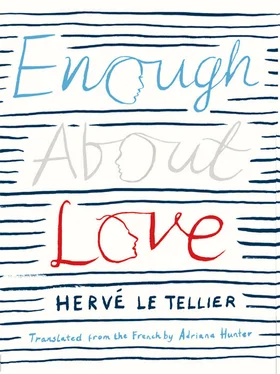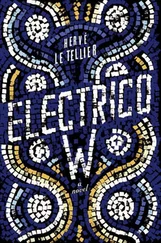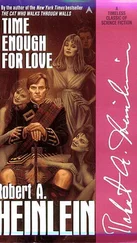“On what in what?” says the driver.
“Cryptobiosis in tardigrades. Tardigrades are tiny invertebrates, no bigger than a pinhead. They can expel all the water from their bodies to withstand extreme temperatures in the Antarctic: that’s what cryptobiosis is. They can survive in that state for many years, centuries even. I’ve been studying them for twenty-two years now.”
“Are we paying you for this out of our taxes?” the driver asks anxiously.
“Oh … I see …,” says Yves. Then his voice becomes more crisp, as would be appropriate for an offended researcher: “But, you see, if you’re told you have cancer, which I hope you aren’t, but let’s say you are, and I work out how to keep you alive in a frozen state until a cure is found for this bastard cancer, you won’t mind funding my little salary all the years I’ve been studying tardigrades.”
“Yeah, okay, true enough,” admits the now reassured, taxpaying driver. “So what are they called, tradigrades, did you say?”
“Tardi. Tardigrades. And cryptobiosis.”
“Cryptobosis,” the driver repeats meekly, nodding.
“Biosis. Like biology.”
Victory by default.
Sometimes the game requires judgment. At a barber’s in Rennes, he once said he was a museum curator, adding, “At the Space Museum.”
“Really? The Space Museum? I don’t believe it,” said the customer next to him. “That’s fantastic.”
Unlucky: the guy turned out to be an amateur astronomer who had been subscribing to Air and Cosmos magazine “from the age of twelve,” and all through his childhood — he admitted with child-in-a-candy-store enthusiasm — he built models of space shuttles, space capsules, and launchers: “My favorites were the Soyuz-U, they were the real McCoy.” He has the best one in his living room. It is on a scale of one to twenty-four but still measures seven feet; he used a candle to reproduce the fuel burns on the propulsion nozzles.
“It pisses my wife off but the kids love it.”
Yves lets him talk, knowing from experience this is an infallible tactic: the first thing an amateur meeting a specialist wants to do is display his knowledge, be sent off with flying colors. This man, Yves realizes instinctively, knows a lot more than he does on the subject. So he cautiously restricts the conversation to a subject he has mastered, claiming there is an upcoming exhibition: the life of Werner von Braun, the ex-Nazi scientist who ran NASA during the space race. He mentions the CIA’s Operation Paperback, in which they exfiltrated war criminals to serve the needs of the Cold War, and talks about the Dora work camp where von Braun was a particularly zealous Obersturmführer . Yves never hesitates, confidently coining the names of “that crook” von Braun’s collaborators: Gustav Jung and Friedrich Hofmannsthal. The surnames may be fakes, borrowed from other fields, but all the anecdotes Yves relates are real: that is his elegance as a liar. He holds out like this for ten minutes, easily. Yves is grateful for having short straight hair, the barber has already finished cutting it.
“Perhaps I could come and see you at the museum?” asks the Air and Cosmos subscriber.
Yves feels awkward, crestfallen, as he always does when he has to leave the fiction and turn to real deception. Misleading such a charming man ruins the pleasure of inventing another life for himself. He finds an escape route.
Yves is not a pathological liar. He simply regrets that, in his teens, no single passion swept aside all the others and overtook him completely. He became neither a biologist nor a theologian, astronomer, or historian. Yves is a writer. He makes things up unashamedly partly because admitting what he does to a stranger always results in an intrigued “And what have you written?” inevitably followed by the perennial “Sorry, I haven’t read it.”
A writer. It took him a long time to call himself one, but he lives with words and ended up living off them, not as comfortably as he would like, but a good deal better than he had suspected. His editors reassure him: “You have readers, but you haven’t yet found your true readership.” Yves is not sure he is the type that has a true readership.
Yves is a writer because he could not write “infinite tenderness,” “life’s journey,” or “hopelessly in love” without feeling ashamed. From time to time he lets slip a “sleeping heavily,” “quick as a flash,” and “scribbled in haste,” and is very upset when he spots the cliché once the book is published. He often uses superfluous commas too, then exterminates them mercilessly. He has read too much not to know that writing well means writing badly, as someone once said. He wishes every sentence spilled out of him, surprised him, and that the surprise would never lose its sparkle. He reads over his work, exasperated to find mannerisms in his writing; then he erases the seductive ring it had, the elegant turn of phrase, he tracks down the literary pleonasm and destroys the ternary rhythm that comes to him naturally. Sometimes there is nothing left of the first draft, except perhaps its bare bones. In trying to grasp the kernel of life, Giacometti constantly stripped clay from his iron framework. The language Yves Janvier pummels at is his enemy, he knows it is too exotic and too intimate. His words try to depict real things, like flagstones covering beaten earth: but, in places, rebellious weeds poke through. He could go on deleting and reworking forever. He is hoping for a miracle, for absolute grace, and senses it only in other people’s work. He is not sure whether this dissatisfaction is proof of being an artist.
His brief meeting with Anna Stein was something he wanted to write about that same evening. It was simple: a young woman at a party, where he only meant to stop by, talks about the incest taboo, about the French Revolution, Freud, and the law. He goes over and listens. And is immediately attracted to her. Some people are staying for dinner, she is one of them. He follows them, follows her. She is still talking, about childhood, illness, death, she gets to him even more. It is so straightforward. How to describe the beginnings of love? That eternal question. Of course, “eternal question” is a cliché.
But he did not give up. At first he struggled at length over every word, every sentence. When the page was finally covered with writing, a sort of poetry with a set, musical rhythm had written itself beneath his fingers, a poetry in which he spoke to her, intimate, familiar. It did not surprise him. The form was so self-evident it carried him along.
• •
T HOMAS LE GALL IS CURIOUS about Louise Blum, curious and in a hurry.
The moment the door to his office is closed, he calls the friend who invited him to Sammy’s dinner, thanking him yet again. Feigning detachment, he tries to find out more about Louise. He clearly is not discreet enough: he earns an ironic laugh.
“Are you interested in Romain Vidal’s wife, then?”
Thomas does not deny it, but changes the subject. The name Romain Vidal means something to him. In a few clicks, he knows almost everything about Louise Blum’s husband: a doctor of biology and linguistics, he is a respected researcher and a shameless popularizer with over two hundred thousand references on the Internet. Thomas types in his own name. Ten times fewer, nothing to show off about. Not forgetting that there are also Thomas Le Galls who are pharmacists in Saint-Malo or headmasters of elementary schools in Quebec … Yves Janvier, how many of them? Thirty-five thousand times. Thomas switches off his computer and closes up.
In the bookstore on the Place de la Contrescarpe, there are piles of copies of Yves Janvier’s Two-Leaf Clover . He asks the proprietor about it, and the total lack of conviction in the man’s voice—“It’s not bad”—proves he knows absolutely nothing about it. Thomas buys one and, because the sun is shining, because it is still warm, he sits out on a terrace facing the fountain on the rue Mouffetard and orders a cup of coffee.
Читать дальше












